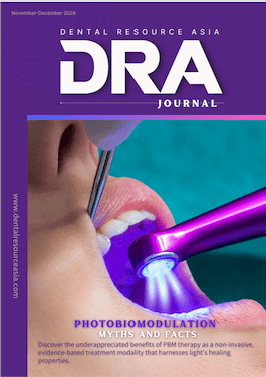Hong Kong: Researchers from Hong Kong and Queensland have teamed up to develop an online platform that uses artificial intelligence to predict the risk of oral cancer occurrence.
The AI-powered web tool is able to generate an individualized prediction of the risk level of developing oral cancer for patients with oral leukoplakia (OL) and oral lichenoid mucositis (OLM).
OL/OLM are the clinical names of the white patches from which oral cancer typically develops. Early detection and monitoring of these lesions are critical in the prevention of oral cancer, since they usually appear long before the patient is diagnosed with the cancer.
The task of predicting which OL/OLM lesions lead to oral cancer, however, can be highly challenging, given widely varying global risk rates of progression (between 0.4 – 40.8%).
The research study trained and tested a deep-learning algorithm known as ‘DeepSurv’ with data from patients with OL/OLM treated in Hong Kong (716 patients) and Newcastle Upon Tyne, UK (382 patients).
The AI model was able to correctly predict the cancer risk level for 95% of the cases in Hong Kong and 82% of the patients in the British cohort. The actual risk levels of the patients, who were under review for many years, were already known prior to the test.
The algorithm was trained on 26 pieces of data associated with the OL/OLM patient, including: demography; clinical and pathological description of the disease; and treatment received by the OL/OLM patient. According to the researchers, the predicted risk levels are accurate up to 17 years from the time the data is inputted.
Among other uses, the predictive tool will assist health professionals selecting and prioritizing treatment strategies and close-monitoring schedules for high-risk patients.
Led by Dr Richard Su, Clinical Associate Professor in Oral and Maxillofacial Surgery (OMFS), the research is jointly conducted by the Faculty of Dentistry and the Li Ka Shing Faculty of Medicine, the University of Hong Kong (HKU); Department of Pathology, Queen Mary Hospital, HK; and College of Medicine and Dentistry, James Cook University, Queensland.
The study results are published in an article for the Cancers journal titled “Deep learning predicts the malignant-transformation-free survival of oral potentially malignant disorders”.
Follow this link to the clinical article “Deep Learning Predicts the Malignant-Transformation-Free Survival of Oral Potentially Malignant Disorders”.
Source: University of Hong Kong
The information and viewpoints presented in the above news piece or article do not necessarily reflect the official stance or policy of Dental Resource Asia or the DRA Journal. While we strive to ensure the accuracy of our content, Dental Resource Asia (DRA) or DRA Journal cannot guarantee the constant correctness, comprehensiveness, or timeliness of all the information contained within this website or journal.
Please be aware that all product details, product specifications, and data on this website or journal may be modified without prior notice in order to enhance reliability, functionality, design, or for other reasons.
The content contributed by our bloggers or authors represents their personal opinions and is not intended to defame or discredit any religion, ethnic group, club, organisation, company, individual, or any entity or individual.

